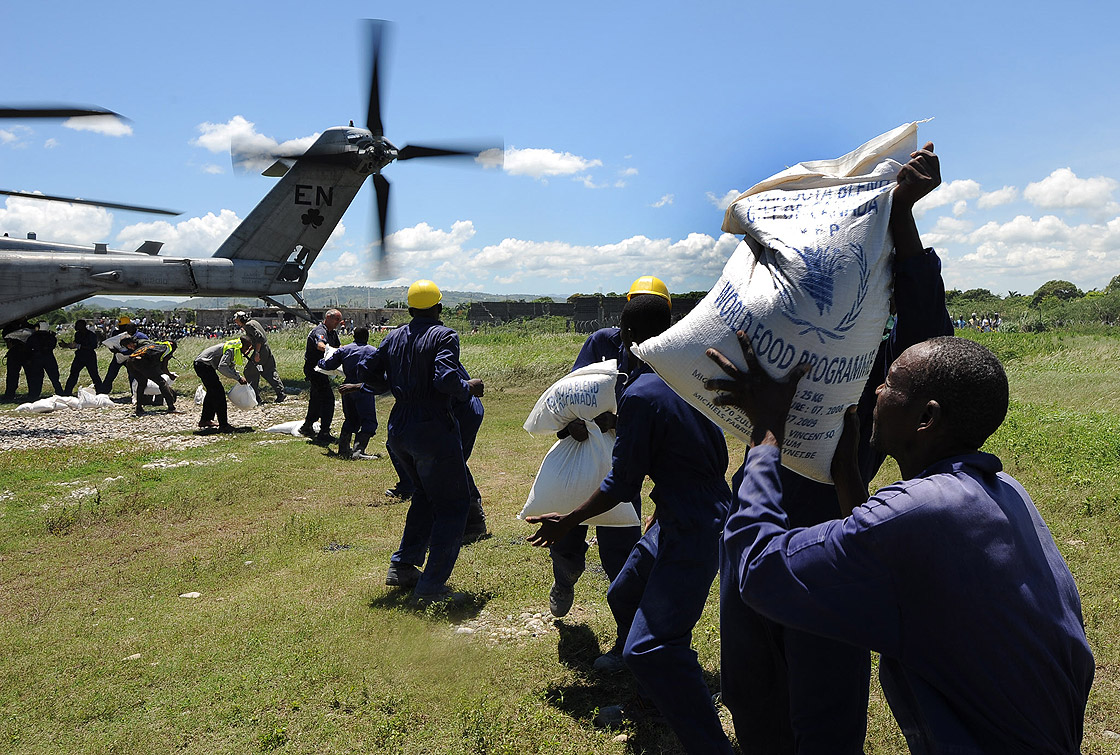MONTREAL – Canada will stop funding new aid projects in Haiti until Ottawa finds a better way for the struggling nation to help itself, says International Co-operation Minister Julian Fantino.

In an interview published Friday in Montreal La Presse, Fantino said he was disappointed at what he considered the lack of progress in Haiti during his November visit to the Caribbean country.
His remarks came just days before the third anniversary of the devastating earthquake in Haiti that killed an estimated 300,000 people and left swaths of the country in ruins.
Fantino indicated that Canada has funnelled $1 billion in development cash to Haiti since 2006 – making it one of the largest foreign donors to the island nation. The former head of the Ontario Provincial Police said his department will continue to fund programs in Haiti that are already underway.
Fantino, who took over the portfolio from Bev Oda last year, said Canadian taxpayers cannot take care of Haiti’s problems forever.
Michaelle Jean, Canada’s Haitian-born, former governor general, hopes Fantino’s funding freeze is truly just a temporary one.
“Often when we say we will freeze (something), it’s sometimes a moment when we need to … refocus,” Jean, now a special envoy to Haiti for UNESCO, told The Canadian Press in an interview Friday.
- B.C. officer alleged sexual assault, CSIS had her investigated
- Alberta to overhaul municipal rules to include sweeping new powers, municipal political parties
- Military judges don’t have divided loyalties, Canada’s top court rules
- Norad looking to NATO to help detect threats over the Arctic, chief says
“I hope that is what this means – in all my heart, I hope that’s what this means.”
She acknowledged that donor countries must rethink how they allocate aid money in Haiti to ensure the long-term rebuilding process there is a success.
Jean would like to see countries like Canada continue to help Haiti reinforce its hobbled government, which she said lost 30 per cent of its civil servants and all but one of its buildings in the January 2010 quake.
“I don’t think we wish to break up a relationship as important as the one that exists between Canada and Haiti,” she replied when asked about the prospect of Ottawa halting all foreign aid to Haiti.
Fantino also compared Haiti’s terrible state with much-better conditions in the neighbouring Dominican Republic. The two nations share the island of Hispaniola.
He remarked about the filth and garbage he saw during his recent visit to Haiti. He wondered how a country with so many unemployed people had not found a way to clean it up.
Jean believes it’s hurtful for Haitians to hear comments like this about the condition of the country.
“Where do you want them to find the means to do it?” she said.
“You think it gives them pleasure to live with this garbage? No, not at all. On the other hand, they are overwhelmed.”
She added that tasking Haitians with the cleanup would be a good idea, but Haiti lacks the costly infrastructure to collect trash and dispose of it.
“I think Mr. Fantino has a good opportunity, now that he’s found the garbage situation shocking,” said Jean, noting that the Haitian government is working on a plan to clean up the country.
“Maybe it would be a good idea to help Haiti in waste management.”
CIDA’s $5-billion annual budget has been frozen until 2015 as part of the federal government’s deficit-reducing plan.
In a November telephone call with media during his visit to Haiti, Fantino told reporters that CIDA doesn’t exist to fund aid groups indefinitely and his job is to ensure Canadians get value for their overseas-development bucks.
“There’s always adjustments being made,” he said at the time. “Programs that we enter into are not for life.”
The Canadian International Development Agency declined to make Fantino available for an interview Friday. Instead, the department issued a brief statement by email.
“CIDA will continue to offer our support for the people of Haiti in response to their emergency needs should humanitarian crises arise,” the statement said.
“We also continue to make progress in areas of long-term development that we have previously committed to.”



Comments